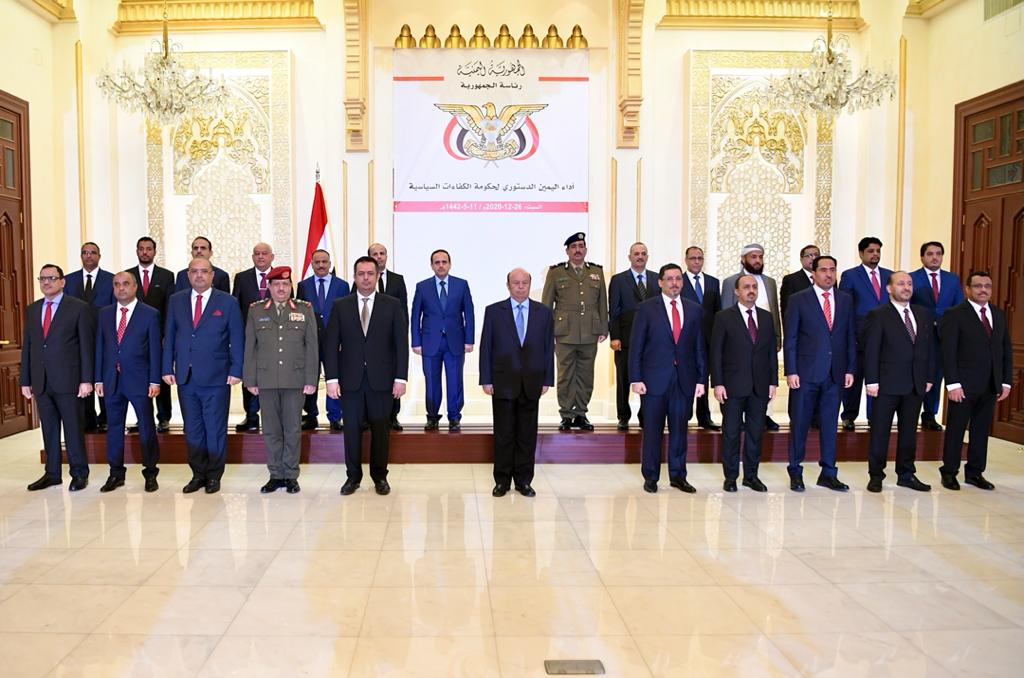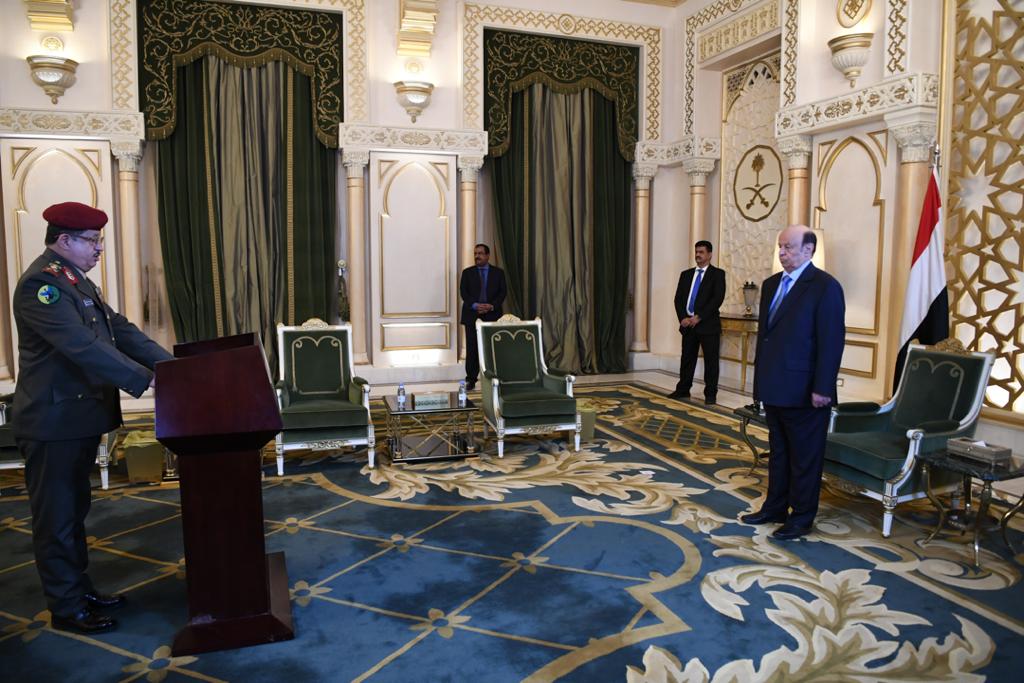AL-MUKALLA: Yemen’s new unity government was sworn in on Saturday before President Abed Rabbo Mansour Hadi in Riyadh, closing months of violence and political wrangling in southern Yemen provinces that weakened the anti-Houthi bloc.
Led by Prime Minister Maeen Abdul Malik Saeed, the new government is formed of 24 ministers, representing major political forces in Yemen, including the powerful Southern Transitional Council (STC).
Setting the new government’s priorities, the Yemeni president met with the ministers after the ceremony, in which he ordered them to focus their attention and efforts on addressing economic woes including managing a plunging currency, boosting revenues and defeating the Houthis, official news agency SABA reported. Hadi told the ministers that Yemenis are pinning hopes on this government to restore peace and stability to the liberated provinces, revive government bodies and unify forces to confront the Iran-backed Houthis.
“We want a revival of institutions, recovery of the economy, restoration of security and a confrontation of the coup. This in short is what awaits you,” Hadi said, pledging his full support and the dismissal of ineffective ministers. Addressing the ministers of defense and interior, Hadi said that the new government is responsible for merging and disarming factions, getting them under the state’s control and putting into place the remaining security and military components of the Riyadh Agreement.
“We want the temporary capital Aden free of all military units. Security services must carry out their duties. We do not want conflicts after today. No more blood. Our enemy is the Houthis,” he said.
During the meeting, Hadi thanked Saudi Arabia for paving the way for the implementation of the Riyadh Agreement, expressing hope for a new bailout from the Kingdom to steady the country’s troubled economy.
At the same time, the new prime minister said that his government is aware of the big challenges and would collectively work in accordance with agendas set by President Hadi.
After months of political stalemate, the Arab coalition announced on Dec. 11 that Yemeni parties would immediately implement security and military arrangements under the Riyadh Agreement, agreeing to form a new government when the deployment of forces came to an end.
Under the supervision of the Saudi de-escalation committee in Yemen, hundreds of military troops from the former government and the STC departed contested areas in the southern province of Abyan. Military units also withdrew from Aden and were redeployed in battlefields with the Houthis.
Positive news about the formation of the new government and its expected return to Aden have pushed the Yemeni riyal into recovering against foreign currencies. Moneychangers told Arab News on Saturday afternoon that the riyal surged to 720 against the US dollar after sinking to 920 a couple of weeks ago, shortly after ministers took the constitutional oath.


Killing of Yemeni mother sparks outrage against HouthisCOVID-19 could ‘easily overwhelm’ Yemen’s health system, warns official

